![]()
Sat, Feb 19, 2011 | WikiLeaks
WikiLeaks: Kurdish Leader Discusses 2009 Local Turkish Elections
In an April 22 roundtable at Chatham House on Turkey’s recent elections, Kurdish political leader Ahmet Türk gave prepared remarks and took questions from a mostly Turkish audience. He condemned the Turkish government’s decision to respond to his party’s (DTP) electoral success and the subsequent PKK declaration of a cease-fire with repression. Turk insisted that the DTP supports a peaceful solution to the Kurdish issue in Turkey, and called for a new Turkish constitution that acknowledges the rights of minorities.
Turkey held local elections on 29 March 2009. The overal winner was the ruling Islamist party ‘Justice and Development Party’ (AKP), although the party saw a decline in its vote relative to the 2007 general election. The leading opposition party, the social democratic Kemalist CHP, increased its vote share, as did a number of smaller parties including the SP, DTP and BBP.
The DTP — The Democratic Society Party (Turkish: Demokratik Toplum Partisi , DTP, Kurdish: Partiya Civaka Demokratîk, PCD) was a Kurdish political party in Turkey. The party considered itself social democratic, and had observer status in the Socialist International. It was considered to be the successor of the Democratic People’s Party (DEHAP). On December 11, 2009, the Constitutional Court of Turkey banned the DTP, ruling that the party has become “focal point of activities against the indivisible unity of the state, the country and the nation”. The ban has been widely criticized both by groups within Turkey and by several international organizations.[clarification needed] The party is succeeded by the Peace and Democracy Party.
Source: WikiLeaks
Reference ID: 09LONDON970
Created: 2009-04-27 11:11
Classification: CONFIDENTIAL
Origin: Embassy LondonVZCZCXRO9674
PP RUEHDE RUEHKUK
DE RUEHLO #0970/01 1171143
ZNY CCCCC ZZH
P 271143Z APR 09
FM AMEMBASSY LONDON
TO RUEHC/SECSTATE WASHDC PRIORITY 2111
INFO RUEHAK/AMEMBASSY ANKARA 0982
RUEHGB/AMEMBASSY BAGHDAD 0773
RUEHMD/AMEMBASSY MADRID 1232
RUEHFR/AMEMBASSY PARIS 3452
RUEHDE/AMCONSUL DUBAI 0295
RUEHIT/AMCONSUL ISTANBUL 0192
RUEHKUK/REO KIRKUK 0001C O N F I D E N T I A L SECTION 01 OF 03 LONDON 000970
SIPDIS
CONSULATE DUBAI FOR IRPO, CONSULATE ISTANBUL FOR IRAN
WATCHERE.O. 12958: DECL: 04/21/2019
TAGS: PREL PGOV PINS PTER FR IZ IR SP TU UK
SUBJECT: KURDISH LEADER DISCUSSES RECENT TURKISH ELECTIONSREF: A. ADANA 020 B. ANKARA 552
Classified By: Political Minister Counselor Greg Berry for reasons 1.4 (b) and (d).
1.(C) Summary. In an April 22 roundtable at Chatham House on Turkey’s recent elections, Kurdish political leader Ahmet Turk gave prepared remarks and took questions from a mostly Turkish audience. He condemned the Turkish government’s decision to respond to his party’s electoral success and the subsequent PKK declaration of a cease-fire with repression. Turk insisted that the DTP supports a peaceful solution to the Kurdish issue in Turkey, and called for a new Turkish constitution that acknowledges the rights of minorities. End Summary.
“Turkey considers all Kurds terrorists”
—————————– ——–¶2. (C) Ahmet Turk, leader of the Democratic Society Party (DTP) – Turkey’s largest Kurdish political party spoke at Chatham House in a meeting that was open to the press on April 21. His declared topic was the recent local and provincial elections in which the DTP scored remarkable success in Kurdish dominated areas. But he also addressed the larger issue of Turkey’s treatment of the Kurds; the Kurdish people’s division among four modern states (Iran, Iraq and Syria as well as Turkey), which Turk blamed for “robbing” the Kurds of the same rights as other people; and his party’s proposals for a solution to the problem of the Kurds. He opened by saying that the Kurdish people want to live in harmony with the Turks; but that Turkey, under the pretext of “fighting terrorism,” considers all Kurds to be terrorists, and considers political parties formed to represent minorities to be “disloyal,” and until 1990 prohibited them. In 1990 Kurds began forming political parties. “Others took the path of resistance.” (Embassy note: A reference to the Kurdistan Worker’s Party or PKK.) Despite persecution, the Kurds were trying to pursue their goals of recognition, equal treatment of their culture and language via peaceful political means. He said Turkey’s response was arrest, imprisonment and extra-judicial killing of Kurdish politicians. “I have been imprisoned three times,” he said.
Recent election success spoiled by repression
——————————————— –3.(C) Turk said that Turkey’s constitutional requirement that political parties gain 10 percent of the vote to be seated has made it difficult for the DTP to win elections in the past. In the most recent elections, however, the DTP decided to run its candidates as individuals (who are not subject to the 10 percent rule) and only announced their affiliation after winning elections. “The DTP gained control of 99 local authorities, up from 56, and the DTP is now the fourth largest party in the provincial parliament,” he said. (Embassy note. He did not make clear which province(s) he was describing). He added, “the DTP got the largest vote total of any party in any provincial election.” After the election, he said, the PKK announced a cease-fire since “the Kurdish people had chosen a peaceful political solution to Kurdish issues with Turkey over violence.” Turkey’s response, he said, was to raid DTP party offices and arrest over 100 party officials and charge them with terrorist offenses (see ref A). This underscored Turkey’s unwillingness to deal with Kurds peacefully.
Who uses violence?
——————–4.(C) The Turkish military and others, Turk said, do not want a solution because they fear a loss of power. The DTP has allies among the Turkish people, primarily intellectuals, who see that Turkey must find a peaceful solution. “I believe there is no solution (via) arms. But both sides must be peaceful. It must be asked: Who wants peace and who doesn’t? The DTP has called for a peaceful solution. The PKK declared a cease-fire after elections. The response from Turkey was a crackdown.” Turk concluded his prepared remarks by saying: “Kurds are just looking for security. Why doesn’t Europe tell the Turkish government: you must permit the Kurds to have a separate identity within Turkey.”
LONDON 00000970 002 OF 003
Obama and the PKK
———————¶5. (C) Turk was asked by a Turkish reporter for CNN why when President Obama says the PKK is a terrorist organization, you don’t react. But when Turkey considers the PKK terrorists, you object. He denied that Obama called the PKK terrorists in his meeting with Turk, but acknowledged that it is official U.S. policy that the PKK are terrorists. “One has to be careful how one labels groups. The PKK is not al-Qaeda. If Turkey was fair and open to Kurdish rights, there would be no PKK. The issue is Turkish refusal to resolve the issue peacefully.”
DTP supports EU accession
—————————-6.(C) Asked about EU accession, Turk responded that the DTP is a strong supporter of the accession process. “If accession means Turkey was subject to the ECHR (European Commission on Human Rights), that would be good for the Kurdish cause. The people who oppose EU accession are the ones who want a violent solution to Kurdish concerns, because they see Turkey as a unified state, without minorities or at least without minority rights.”
Erdogan
———7.(C) One reporter asked whether Turkish PM Recep Erdogan was better or worse than his predecessors in dealing with the Kurds. Turk responded that the Kurds’ original support for Erdogan had dissolved after the prime minister “made too many compromises” with the military (including the closure case – see ref B) and other “nationalists” who want to resist the granting of Kurdish rights. “Erdogan gave a speech where he said ‘Turkey: one people, one flag, one language, one nation.’ This shows his true colors.”
8.(C) A western reporter asked about Erdogan’s speaking Kurdish on TV. Turk said that it is unconstitutional in Turkey to broadcast in another language, but the station was a Turkish government approved station which used a loophole to allow it. While many applaud this station as a sign of progress, “the performers, the technicians, all the people, the scripts, everything must be approved by the government,” he said. In the UK, France and Spain, this is not the case. In the UK, you have a Welsh station, S4C, which is funded by the government, but is not controlled by it. The same is true for Breton stations in France and Catalan stations in Spain. We need the guaranteed right to broadcast in the constitution because without this, any TV can be removed.”
Voters Pressured?
——————-9.(C) Another Turkish reporter asked about Turkish government accusations that the DTP threatened Kurds before the elections, and that is why the DTP did so well. Turk laughed. He then said that if that were the case, why did the DTP do better in cities, where a threat would be hard to carry out because people are anonymous, rather than small intimate villages where the DTP did not do as well? He also accused the AKP (The Turkish government’s party) of giving away washing machines and refrigerators just before the elections in poor communities. “That is corruption and can be proved,” he said
Solution?
———10.(C) In summation, Turk said that the DTP wishes to see a peaceful political solution to Kurdish demands for their rights, which included the Turkish government’s recognition of the DTP as “a legitimate party that wants to work within Turkey to find a solution.” He then said that the Kurdish problem could not be solved domestically, but was an international problem, because the 40 million Kurds are divided between Turkey, Iran, Iraq and Syria. “Anyway, the PKK is not part of the solution, the DTP is. But Turkey does not care about the PKK in Turkey, they don’t want the Kurds in Iraq to achieve anything.”
LONDON 00000970 003 OF 003
11.(C) Finally, he was asked what the DTP seek. Turk said, “We want a new constitution for Turkey that is based on the Universal Declaration of Human Rights. A constitution that recognizes the Kurdish culture and languages as legitimate within the Turkish state. We seek devolution of power to the Kurdish-controlled areas, like the Welsh, Bretons, and Catalans enjoy. “Freedom for Kurds would also mean freedom for Turks. Because many of the restrictions in Turkish life would be lifted in a Turkey that accepted that there were many ways to be a citizen of Turkey. Also, remember that oppressors oppress none so much as themselves.”
Visit London’s Classified Website: XXXXXXXXXXXX LEBARON



 RSS
RSS

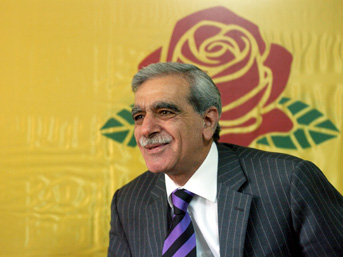

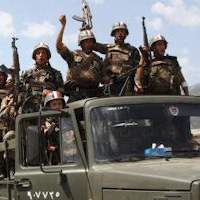
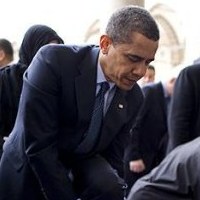

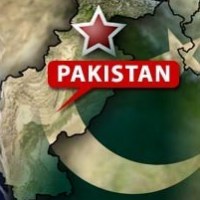
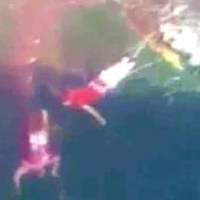




#WikiLeaks: #Kurdish Leader Discusses 2009 #Turkish Local #Elections | #Turkey #Kurds #democracy #PKK #freedom http://j.mp/gwp1yC